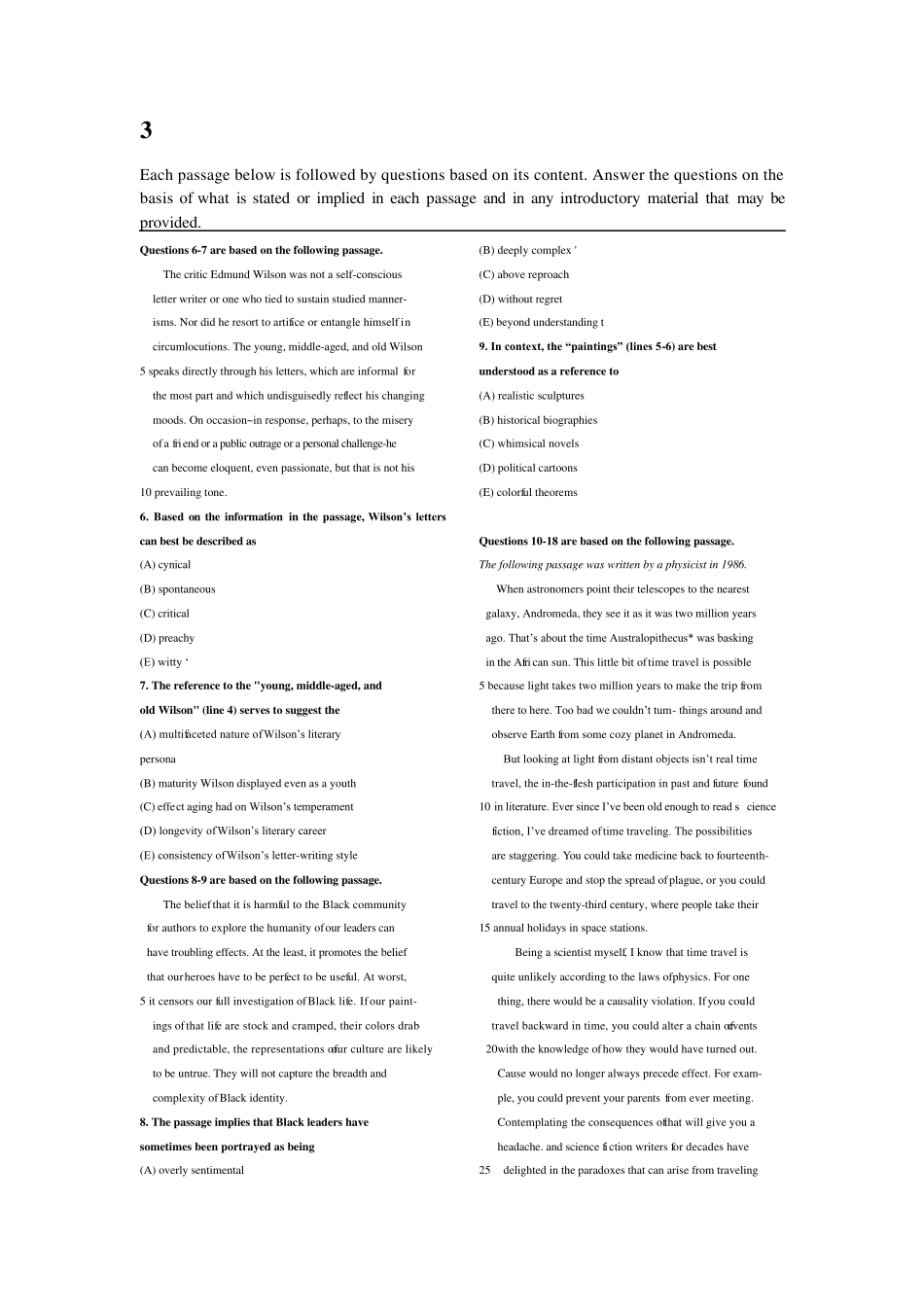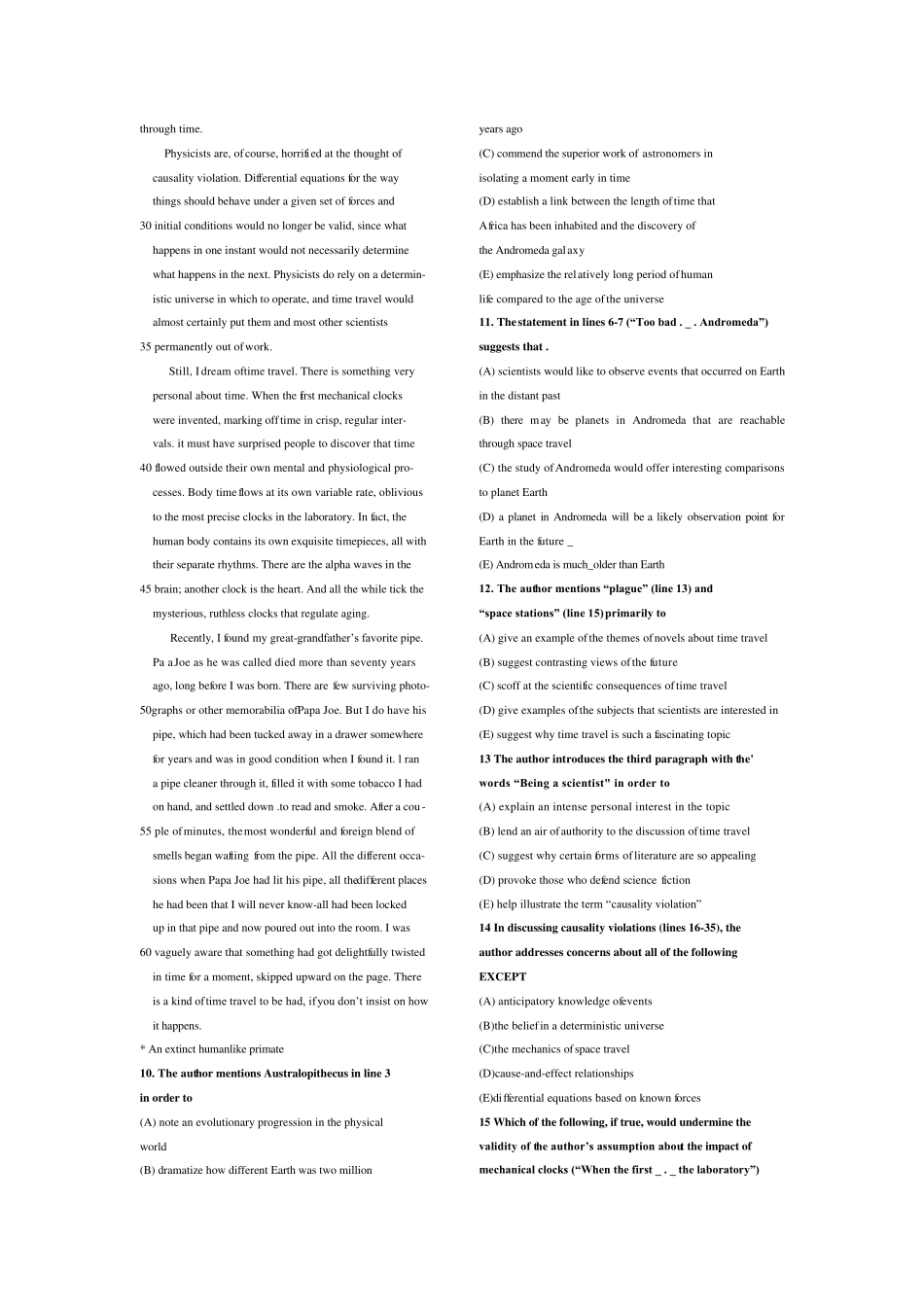3 Each passage below is followed by questions based on its content. Answer the questions on the basis of what is stated or implied in each passage and in any introductory material that may be provided. Questions 6-7 are based on the following passage. The critic Edmund Wilson was not a self-conscious letter writer or one who tied to sustain studied manner- isms. Nor did he resort to artifice or entangle himself in circumlocutions. The young, middle-aged, and old Wilson 5 speaks directly through his letters, which are informal for the most part and which undisguisedly reflect his changing moods. On occasion~in response, perhaps, to the misery of a friend or a public outrage or a personal challenge-he can become eloquent, even passionate, but that is not his 10 prevailing tone. 6. Based on the information in the passage, Wilson’s letters can best be described as (A) cynical (B) spontaneous (C) critical (D) preachy (E) witty „ 7. The reference to the "young, middle-aged, and old Wilson" (line 4) serves to suggest the (A) multifaceted nature of Wilson‟s literary persona (B) maturity Wilson displayed even as a youth (C) effect aging had on Wilson‟s temperament (D) longevity of Wilson‟s literary career (E) consistency of Wilson‟s letter-writing style Questions 8-9 are based on the following passage. The belief that it is harmful to the Black community for authors to explore the humanity of our leaders can have troubling effects. At the least, it promotes the belief that our heroes have to be perfect to be useful. At worst, 5 it censors our full investigation of Black life. If our paint- ings of that life are stock and cramped, their colors drab and predictable, the representations of...


